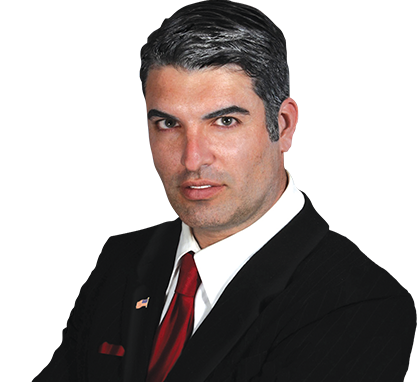
David S. Chesley
Sacramento Criminal Defense: Disturbing the Peace, Drunk in Public, and Resisting Arrest under California Law
Law Office of David Chesley
Sacramento Criminal Defense Lawyers Representing Individuals Facing Criminal Charges
Disturbing the peace, drunk in public, and resisting arrest are common charges that often arise from a simple lapse in judgment. Unfortunately, many people think that these aren’t serious offenses and either just plead guilty or attempt to represent themselves. While these may be relatively minor offenses compared to other crimes, a conviction for any one of these will still carry potential penalties such as fines and jail time and will go on your permanent criminal record.
Too many people realize that they should have hired a criminal defense lawyer in the Bay Area once their case is finished and their conviction is causing problems in their life. At The Law Offices of David S. Chesley, we believe that even minor offenses deserve an aggressive criminal defense. With over 50 years of courtroom experience, we know how to level the playing field to get you a fair result. If you’d like to schedule a free consultation, call us at 800-755-5174 or contact us online to discuss your case and how we can help you.
What is Disturbing the Peace?
California Penal Code Section 415 criminalizes three types of behavior:
- Unlawful fighting or challenging another person to fight in public.
- Maliciously or willfully disturbing someone else with loud or unreasonable noise.
- Using offensive words in public that are likely to provoke an immediate response.
While the conduct prohibited by the statute seems pretty clear, the statute is narrower than you think. Each of these offenses has specific elements that the prosecution may prove. If they cannot prove those elements, they cannot convict you of disturbing the peace.
Here are some common situations that may result in a charge for disturbing the peace:
- You get in a fight with a fan of the opposing team at a professional sporting event.
- You shout a racial slur at a group of teenagers.
- You blast music late at night in order to annoy your neighbor.
The Consequences of a Conviction for Disturbing the Peace
Disturbing the peace is a wobbler offense that may be charged as an infraction or a misdemeanor. If charged as an infraction, you face a potential fine of up to $250, but you will not face any jail time.
If you are charged with misdemeanor disturbing the peace, you could face the following penalties:
- Up to 90 days in jail
- A fine of up to $400
- Probation
The facts of your case and your criminal history will determine whether you are charged with a misdemeanor or an infraction. However, if your offense was committed on school grounds or you have a prior conviction for disturbing the peace, you will be charged with a misdemeanor, and harsher penalties could apply.
Drunk in Public
Drunk in public charges, formally known as public intoxication, are another common low-level offense. However, many people don’t realize that you can’t be charged with public intoxication simply because you are drunk in public. California Penal Code Section 647(f) requires that your intoxication either –
- Makes you a danger to yourself or to others; or
- You are interfering with or preventing others from using public streets, sidewalks, or other public travel ways.
Of course, you must also have been in a public place when intoxicated in order to be charged with this offense. Here are some common examples where you might be charged with public intoxication:
- You leave a bar after consuming several drinks and keep stumbling out into traffic on your walk home.
- You are intoxicated and you pass out on the sidewalk.
- You use heroin in a public park and pass out on a bench.
Penalties for Public Intoxication in Sacramento
Public intoxication is a misdemeanor in California. As a result, you could face the following penalties if you are convicted:
- A fine of up to $1,000 and
- Up to six months in county jail.
The severity of your punishment will depend on the circumstances surrounding your offense and whether you have prior criminal convictions. While you probably won’t go to jail for a first-time drunk in public offense, a conviction will go on your permanent criminal record.
Resisting Arrest
It is not uncommon for people who are charged with disturbing the peace or drunk in public to also wind up with a charge for resisting arrest. Emotions are running high, you’re angry or intoxicated, and suddenly the police are on the scene, which often causes the situation to deteriorate even further. Unfortunately, California’s laws regarding resisting arrest are extremely broad.
California Penal Code Section 148(a)(1) allows you to be charged with resisting arrest for willfully resisting, obstructing, or delaying a law enforcement officer in the performance of their duties. This goes far beyond simply fighting off an attempt to arrest you – refusing to provide your immediately and total cooperation can result in being charged with resisting arrest. You can also be charged with resisting arrest if you interfered with an EMT or firefighter who was trying to do their job. Here are some other actions that can result in a charge for resisting arrest:
- Stiffening your arms in order to resist a police officer from putting you in handcuffs.
- Giving false information to a police officer.
- Preventing an EMT from rendering aid to someone you were fighting with.
- Repeatedly interrupting a police officer who is trying to interview witnesses.
As you can see, California’s law regarding resisting arrest is extremely broad and otherwise innocent can quickly result in being charged.
What You Face if Convicted of Resisting Arrest
Under California law, resisting arrest is a misdemeanor that carries the following penalties:
- Up to one year in county jail; and
- A fine of up to $1,000
As mentioned above, resisting arrest is often charged along with other offenses. As a result, the prosecution may use this additional charge to pressure you into pleading guilty to a crime you didn’t commit. Alternatively, they may offer to dismiss another charge if you agree to plead guilty to resisting arrest. This is a common tactic that prosecutors use to get convictions – the more charges they bring against you, the more likely they are to get a conviction.
Call Us Today to Schedule a Free Case Evaluation with a Bay Area Criminal Defense Lawyer
Even though they are considered minor offenses, make no mistake – prosecutors take these cases seriously and will prosecute you aggressively. If you want someone on your side to make sure you get a fair result, call Sacramento criminal defense attorney David S. Chesley. Schedule your free consultation today by filling out our online form or calling 800-755-5174.





